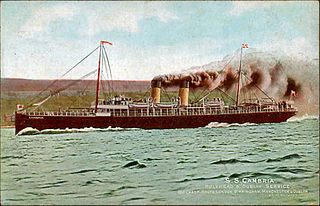 W
WThe Battle of Dublin was a week of street battles in Dublin from 28 June to 5 July 1922 that marked the beginning of the Irish Civil War. Six months after the Anglo-Irish Treaty ended the recent Irish War of Independence, it was fought between the forces of the new Provisional Government and a section of the Irish Republican Army (IRA) that opposed the Treaty. The Irish Citizen Army also became involved in the Battle, supporting the anti-Treaty IRA in the O'Connell Street area. The fighting began with an assault by Provisional Government forces on the Four Courts building, and ended in a decisive victory for the Provisional Government.
 W
WThe Battle of Kilmallock took place between 25 July and 5 August 1922 in County Limerick, Ireland. It was one of the largest engagements of the Irish Civil War.
 W
WTSS Cambria was a twin screw steamer passenger vessel operated by the London and North Western Railway from 1897 to 1923.
 W
WThe Irish Civil War was a conflict that followed the Irish War of Independence and accompanied the establishment of the Irish Free State, an entity independent from the United Kingdom but within the British Empire.
 W
WThe Irish Free State (Agreement) Act 1922 was an Act of the British Parliament passed on 31 March 1922. It gave the force of law to the Anglo-Irish Treaty, which was scheduled to the Act.
 W
WThe Irish Free State Act 1922 was an Act of the Parliament of the United Kingdom passed on 5 December 1922. The Act dealt with a number of matters concerning the Irish Free State, which was established on the day after the Act became law; it also modified the Government of Ireland Act 1920 in relation to Northern Ireland.
 W
WThe Irish Free State Constitution Act 1922 was an Act of the Parliament of the United Kingdom, passed in 1922 to enact in UK law the Constitution of the Irish Free State, and to ratify the 1921 Anglo-Irish Treaty formally.